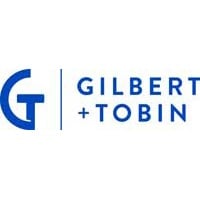

Vice president and general counsel Asia Pacific and chief of staff to the CEO | ResMed





Vered Keisar
Vice president and general counsel Asia Pacific and chief of staff to the CEO | ResMed
Chief People Officer, General Counsel | ResMed
Vice president and general counsel Asia Pacific | ResMed
Vered Keisar joined ResMed in 2012 as a legal counsel looking after the Asia Pacific region and has since moved up the ranks to become vice president and general counsel...
Acquisitions in Australia and Korea and corporate restructures in Asia Pacific.
One way of building relationships with stakeholders has been by developing a deep understanding their business. By understanding the strategic directions and drivers of the company as a whole as well as each business and function, we are able to take an active part in strategy execution. It helps us understanding how we fit in the big picture and drive outcomes rather than answers to legal questions.
Implementation of legal technologies and in-house lawyer as drivers of strategy and culture matters.
We currently use document and matter management. Over the past 12 months we have implemented an Artificial Intelligence base contract review technology and training by text message style. We are currently in the process of implementing a contract life cycle system.
Educating them about our business and industry so that their advice is provided in the right context.
The #MeToo movement challenges social and cultural norms and seeks to effect global change to the attitudes and laws around sexual harassment and sexual assault. Organisations in Australia and around the world are not, and cannot be, spectators in the face of the #MeToo challenge. Whether a wider change for good can be achieved will depend on how the corporate world adapts to the spotlight that has been cast by #MeToo. At the centre of this challenge are in-house lawyers, particularly general counsel.
According to the Australian Human Rights Commission’s fourth national survey on sexual harassment in Australian workplaces, one in five Australians were sexually harassed in the workplace in the last 12 months. Women were more likely than men to have experienced sexual harassment at work. Over the past year, almost one in four women and one in six men said they were sexually harassed. This includes sexual harassment experienced at work, at a work-related event, or while looking for work.
#MeToo cannot be ignored not only in an organisation’s approach to sexual harassment claims advanced by employees but also as an organisation seeks to ensure it has the right culture to achieve its corporate goals. The statistics also raise a question as to whether sexual harassment is a contributor to anxiety and work-related mental health issues that have become prevalent and increasingly visible.
Under the Sex Discrimination Act 1984 (Cth), a person sexually harasses another person if:
(a) the person makes an unwelcome sexual advance, or an unwelcome request for sexual favours, to the person harassed, or
(b) engages in other unwelcome conduct of a sexual nature in relation to the person harassed in circumstances in which a reasonable person, having regard to all the circumstances, would have anticipated the possibility that the person harassed would be offended, humiliated or intimidated.
A definition that could be too narrow in some circumstances and too wide and ambiguous in others. That is, while the legislation has not changed, general counsel are now required to reconsider what conduct should be classified as sexual harassment and clear guidance from the courts may still be some way off. The views and advice of a general counsel will be critical in determining the bounds of their organisation’s approach to sexual harassment.
Against this background, general counsel and their teams are uniquely positioned to play a role in enabling society to embrace the #MeToo cultural shift through their organisations. Simultaneously, they have to mitigate the risk that sexual harassment allegations could be used unfairly and as a result create a culture of fear, avoidance, and limited personal interactions in the workplace.
In these circumstances, the general counsel role first and foremost requires courage. Courage to call out behaviours that previously may have not been classified as misconduct but are unacceptable. Courage to drive change, especially when issues are deeply ingrained and there is a significant reputational and financial risk to the organisation. Courage to implement policies that not only deal with the conduct but also ensure a fair process for all involved and importantly, courage to surface these issues and influence boards and senior management to act as role models and create the right culture.
At a fundamental level, the #MeToo movement provides an opportunity to review internal policies and practices to ensure their organisations provide a safe workplace. Organisations should ensure accessibility to reporting, and non-retaliation must be a key part of policies and trainings. Policies should also address how the organisation deals with a complaint made in bad faith.
An organisation must be positioned to investigate complaints promptly and fairly in a methodical and consistent manner to avoid a predetermined outcome. A consistent approach is crucial to ensuring employees are treated fairly regardless of position, seniority and their contribution to the organisation. In addition, general counsel are required to evaluate what types of allegations should be escalated to the board’s attention. However, less obviously, general counsel should also have the courage to identify that whilst a cultural shift is required, organisations need to go about this change in a considered manner. This is because the consequences of judging too quickly, not following a fair process, and changing policies without considering long-term impact could unintentionally adversely impact our society.
Many relationships that start at the workplace begin well but go astray. In some circumstances, there could be a risk that employees will use sexual harassment to exploit other employees or gain financial advantage over the organisation. There is also a risk that an organisation’s disproportionate fear of a sexual harassment complaint could hinder practices that are beneficial for promoting diversity, inclusion and belonging, such as mentorship and sponsorship. Most importantly, we ought to keep talking about the issues, keep learning and dare to be inconvenient when there are no easy answers.